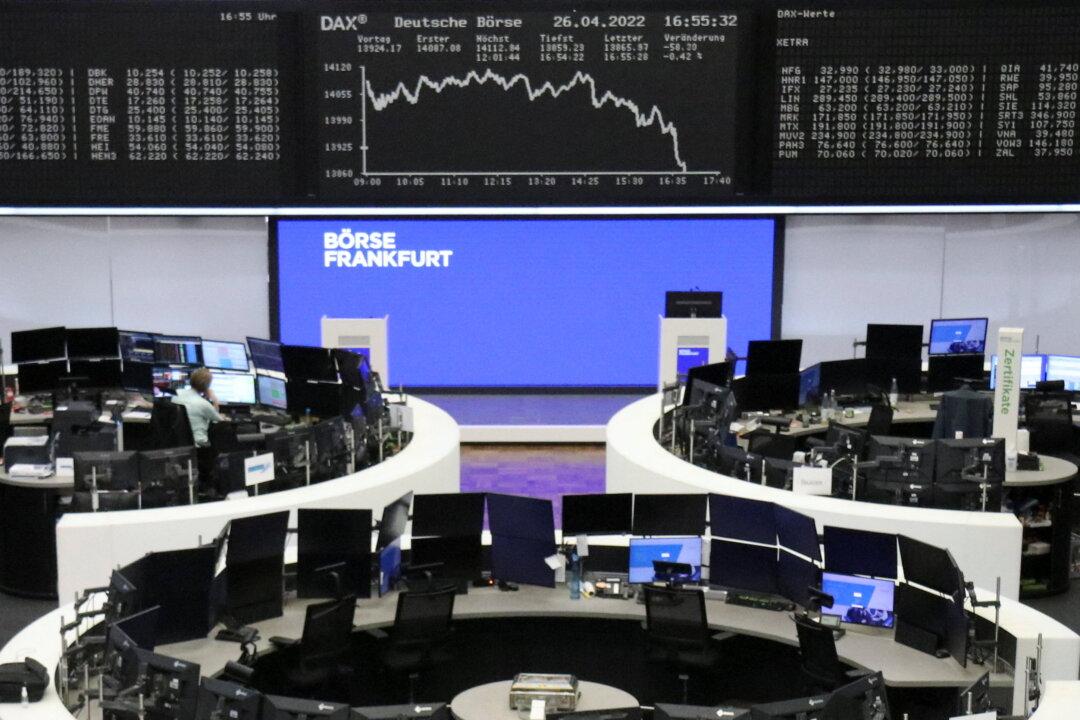MILAN/TOKYO—World shares extended their bounce on Monday, building on Friday’s strong Wall Street close as off-peak oil prices helped sentiment improve and temper fears of prolonged inflation.
Strong morning gains in Europe and a rally across Asian markets after China further eased COVID-19 restrictions drove the MSCI’s benchmark for global stocks up for a third straight session, rising 0.5 percent by 0851 GMT.





